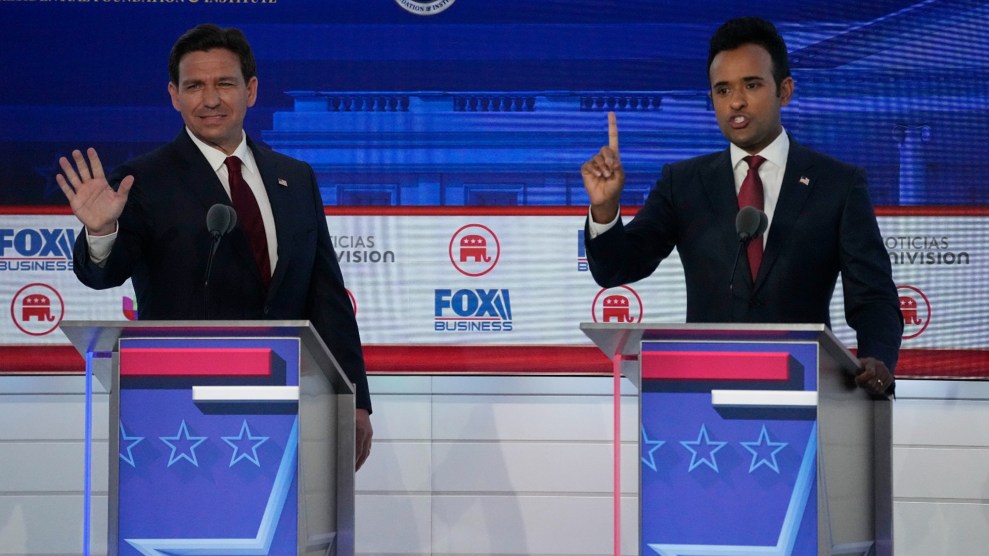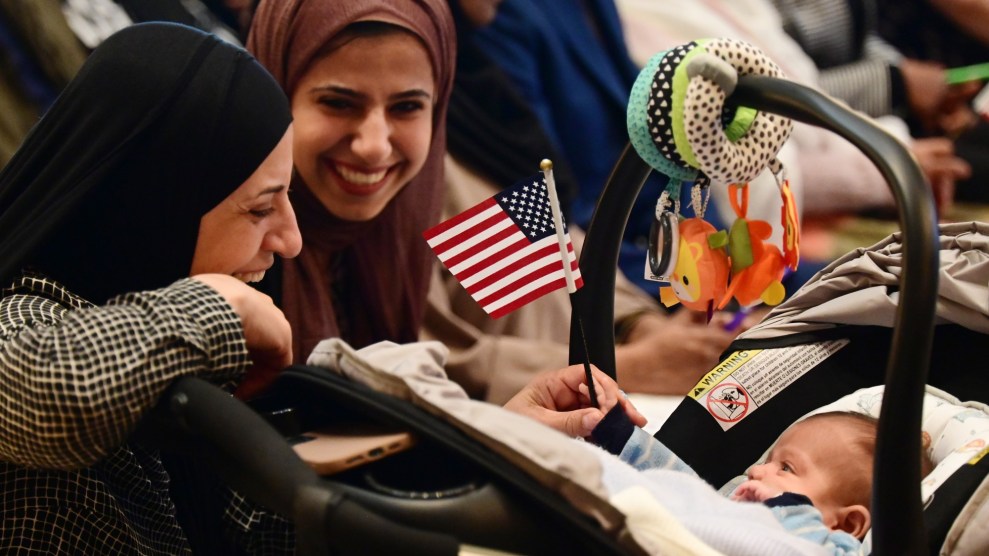
Ron DeSantis and Vivek Ramaswamy during Wednesday's Republican presidential primary debateMark J. Terrill/AP
During the second Republican presidential primary debate, Republicans wasted no time latching onto the issue of immigration—even when the moderators’ questions had little to do with it. When asked about the auto workers’ strike, Sen. Tim Scott of South Carolina swiftly pivoted to the border. “Joe Biden should not be on the picket line,” he said, referring to the president’s recent appearance with striking UAW workers. “He should be on the southern border, working to close our southern border because it is unsafe, wide open, and insecure.”
Even when the questions did focus on immigration, the GOP candidates generally offered little, if any, substance on the issue. Ilia Calderón of Univision asked former Vice President Mike Pence about the future of the Deferred Action for Childhood Arrivals (DACA) program, which former President Donald Trump unsuccessfully tried to terminate, but Pence’s responses focused largely on China. When Calderón followed up, he again dodged the question about the Dreamers. The other candidates repeated their usual spiels: Build the wall, (further) militarize the border, bring back the cruel and ultimately failed Remain in Mexico policy, and defund sanctuary cities.
[Framers of the 14th Amendment] explicitly carved out exemptions to the birthright citizenship rule for only two groups: children of foreign diplomats and Native Americans under tribal rule; the latter were granted citizenship by Congress in 1924…In 1898, the Supreme Court recognized in United States v. Wong Kim Ark that the San Francisco-born son of two Chinese parents who were not US citizens—they had been deemed ineligible for naturalization under racial laws—was indeed a citizen, regardless of his parents’ immigration status. The 14th Amendment, Justice Horace Gray wrote for the 6-2 majority, “in clear words and in manifest intent, includes the children born, within the territory of the United States, of all other persons, of whatever race or color, domiciled within the United States.”
“Not a judge or legal scholar will disagree with me” on denying birthright citizenship to undocumented immigrants, says Vivek Ramaswamy, ignoring the famous Supreme Court 1898 ruling in United States vs Wong Kim Ark which says otherwise.
— Mehdi Hasan (@mehdirhasan) September 28, 2023













